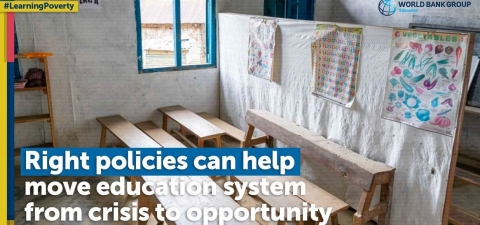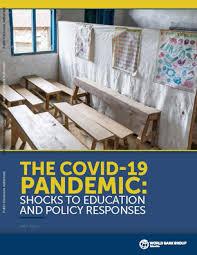https://www.worldbank.org/en/topic/education/publication/the-covid19-pan...
Even before the COVID-19 pandemic, the world was living a learning crisis. Before the pandemic, 258 million children and youth of primary- and secondary-school age were out of school. And low schooling quality meant many who were in school learned too little. The Learning Poverty rate in low-and middle-income countries was 53 percent—meaning that over half of all 10-year-old children couldn't read and understand a simple age appropriate story. Even worse, the crisis was not equally distributed: the most disadvantaged children and youth had the worst access to schooling, highest dropout rates, and the largest learning deficits.
All this means that the world was already far off track for meeting Sustainable Development Goal 4, which commits all nations to ensure that, among other ambitious targets, “all girls and boys complete free, equitable and quality primary and secondary education.”
The COVID-19 pandemic now threatens to make education outcomes even worse. The pandemic has already had profound impacts on education by closing schools almost everywhere in the planet, in the largest simultaneous shock to all education systems in our lifetimes.
The damage will become even more severe as the health emergency translates into a deep global recession. These costs of crisis are described below. But it is possible to counter those shocks, and to turn crisis into opportunity.
The first step is to cope successfully with the school closures, by protecting health and safety and doing what they can to prevent students' learning loss using remote learning. At the same time, countries need to start planning for school reopening. That means preventing dropout, ensuring healthy school conditions, and using new techniques to promote rapid learning recovery in key areas once students are back in school. As the school system stabilizes, countries can use the focus and innovativeness of the recovery period to “build back better.” The key: don't replicate the failures of the pre-COVID systems, but instead build toward improved systems and accelerated learning for all students.
- The COVID-19 pandemic threatens education progress worldwide through two major shocks:
1. The near-universal closing of schools at all levels and
2.The economic recession sparked by pandemic-control measures
- Without major efforts to counter their impacts, the school-closings shock will lead to learning loss, increased dropouts, and higher inequality, and the economic shock will exacerbate the damage, by depressing education demand and supply as it harms households. Together, they will inflict long-run costs on human capital and welfare.
- But if countries move quickly to support continued learning, they can mitigate the damage and even turn recovery into new opportunity.
- The policy responses to achieve this can be summarized in three overlapping phases:
1. Coping
2. Managing Continuity
3. Improving and Accelerating
- In implementing these policies, education systems should aim to recover but not replicate the past—given that in many countries, the pre-COVID status quo was already characterized by too little learning, high levels of inequality, and slow progress.
- Countries now have an opportunity to “build back better”: they can use the most effective crisis-recovery strategies as the basis for long-term improvements in areas like assessment, pedagogy, technology, financing, and parental involvement.












Add new comment